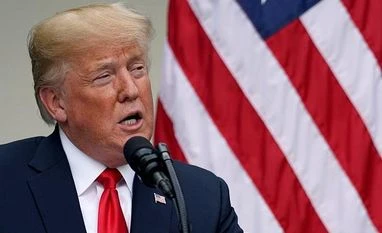US President Donald Trump has abruptly called off a planned visit next week by Secretary of State Micheal Pompeo to North Korea, citing insufficient progress on the denuclearisation of the Korean Peninsula and the lack of support from China for the process due to trade tensions.
Trump's decision to call off the visit came just a day after Pompeo had announced that the newly appointed special representative for North Korea Steve Biegun and he will be travelling to North Korea next week to make further diplomatic progress towards our objective.
"I have asked Secretary of State Mike Pompeo not to go to North Korea, at this time, because I feel we are not making sufficient progress with respect to the denuclearisation of the Korean Peninsula," Trump tweeted on Friday.
He added that because of America's much tougher trading stance with China, I do not believe they are helping with the process of denuclearization as they once were (despite the UN Sanctions which are in place)
Trump said Pompeo looks forward to going to North Korea in the near future, most likely after America's trading relationship with China is resolved.
"In the meantime, I would like to send my warmest regards and respect to Chairman Kim. I look forward to seeing him soon!," the US President said.
This would have been Pompeo's fourth visit to North Korea. In a historic meeting, Trump had met North Korean leader Kim Jong-un in June in Singapore and had praised him saying Kim had "to be a rough guy," but that he's "smart, loves his people, he loves his country. He wants a lot of good things and that's why he's doing this."
A trade war has been escalating between the US and China following announcements by Trump that the US is imposing unilateral tariffs on Chinese imports. China responded by imposing retaliatory tariffs on American products, which prompted Trump to announce that even more tariffs would be put in place.
The International Atomic Energy Agency (IAEA) has expressed concern that North Korea has not shown any indication that it has curbed its nuclear program. In a report, the agency called the "continuation and further development" of Pyongyang's nuclear program a cause for grave concern.
"As the agency remains unable to carry out verification activities in the DPRK [Democratic People's Republic of Korea], its knowledge of the DPRK's nuclear program is limited and, as further nuclear activities take place in the country, this knowledge is declining," the IAEA report said.
)